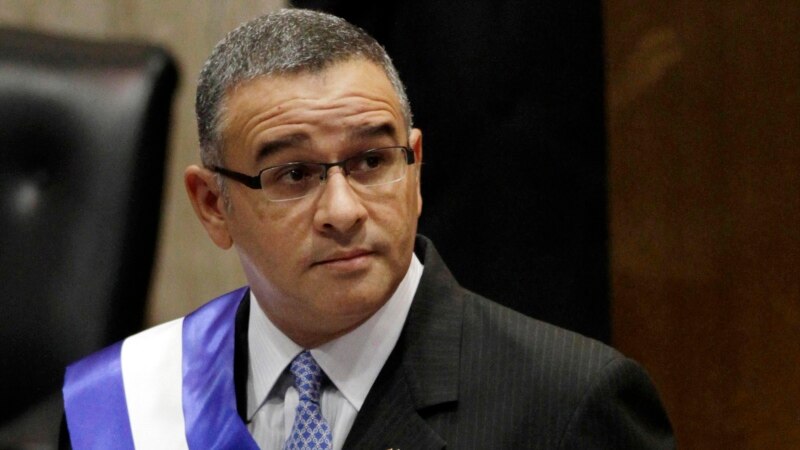
One of the witnesses presented by the Public Ministry in the trial against former president Mauricio Funes For allegedly arranging a truce with the gangs, he assured on Friday that the ex-president was aware of the negotiations with these criminal groups to lower the homicide rate and assured that he gave $50,000 to finance it.
On the last day of the presentation of the witnesses by the prosecutors, the witness with a protection regime and identified with the code “Franco” affirmed that there were two payments that totaled $50,000 “to pay necessary sources of the truce, people infiltrated within the gangs and within prisons”.
“Franco” assured that he worked in the Presidential House under the direct command of Funes and that he is aware that the former president delivered the money and endorsed the truce. “The truce was an agreement with gang members that had the approval of the President of the Republic.”
He explained that during the truce process he participated in meetings that were held once a week in the presidential office, where the then Minister of Security, Munguía Payes, informed Funes of the situation. In one of these meetings, Munguía Payes told him that the gang leaders had to be transferred from the maximum security prison known as Zacatraz to lower security prisons.
Funes, who lives in Nicaragua under the protection of the government of President Daniel Ortega, who in 2019 granted him Nicaraguan nationality to avoid his extradition, is not present at the trial, in which Munguía Payés is also prosecuted. The ex-president did not name a defense attorney, so one was assigned to him ex officio.
Funes faces charges for the crimes of illegal groups and breach of duty and, if found guilty, could receive a sentence of up to 11 years in prison, while General Munguía Payes, who faces the same charges, is added to the crime of arbitrary acts and could receive a sentence of up to 15 years in prison.
From Nicaragua, where he lives under the protection of President Ortega, Funes, who claims to be politically persecuted, once again rejected the accusations and said on his Twitter account that the trial “responds to a conspiracy logic in which witnesses come to lie and misrepresent the facts”.
This is not the first case of alleged negotiations between Salvadoran government officials and gangs. Journalistic investigations and United States authorities have also accused the government of President Nayib Bukele of negotiating with these groups.
The online newspaper El Faro has published two reports documenting negotiations between Bukele administration officials with the three main gangs in El Salvador and an accusation by the United States Attorney’s Office against gang members of the Mara Salvatrucha, filed in a federal court in New York, points to two high-ranking officials of the Bukele government for having negotiated with the gang a reduction in homicides in exchange for alleged benefits between 2019 and 2021.
But neither in El Salvador nor in the United States is there a formal accusation that is specifically directed against officials of the Bukele government for this issue.
Homicides dropped to five per day, but the numbers spiked when the truce was broken in 2013 after the removal of Munguía Payés by order of the Supreme Court of Justice. The new authorities withdrew benefits from imprisoned gang members.
The witnesses, among them the Catholic bishop Fabio Colindres, the former Minister of Security and former director of the State Intelligence Organizations (OIE), Ricardo Perdomo, said in the trial that Funes and General Munguía Payes were aware of all the details of the truce agreements between the gangs.
The bishop explained that the truce began in March 2012 with a meeting in the maximum security prison known as Zacatraaz, where the gang leaders were being held and that in the process they agreed not to attack each other and lower the homicide rates in exchange for benefits. for them.
They asked to be transferred from the maximum security prison to common jails, to be allowed intimate visits and the possibility of having cell phones, among other benefits.
After this meeting, the gang leaders were transferred to prisons where “their bases” were being held to explain the agreements reached to promote the truce.
For his part, the former director of the State Intelligence Agency and former Minister of Security Ricardo Perdomo, who also appeared as a witness, said that he had intelligence information with which he learned of “irregular conditions” that occurred inside the prisons and that former President Funes I was aware.
Connect with the Voice of America! Subscribe to our channel Youtube and activate notifications, or follow us on social networks: Facebook, Twitter and Instagram.














